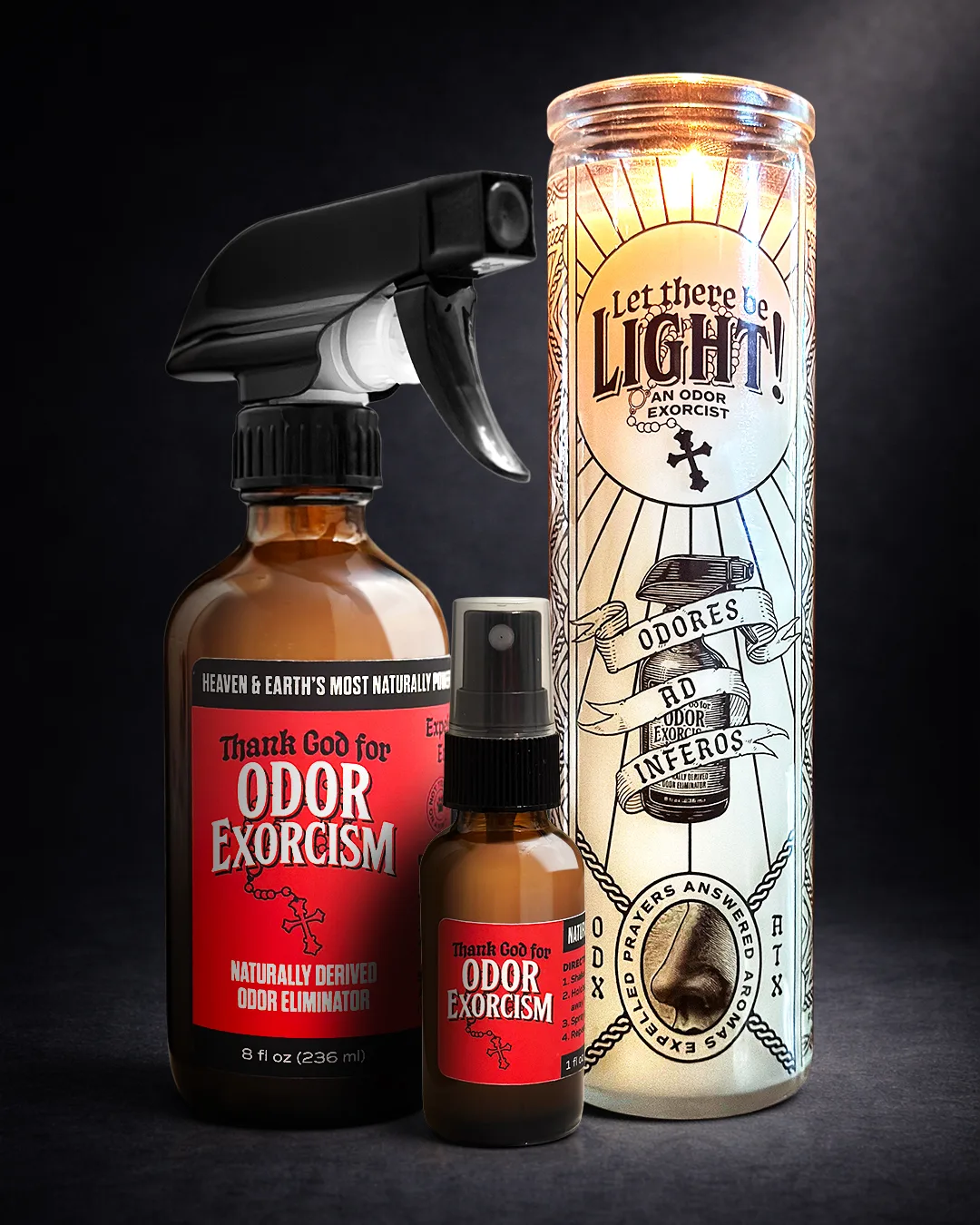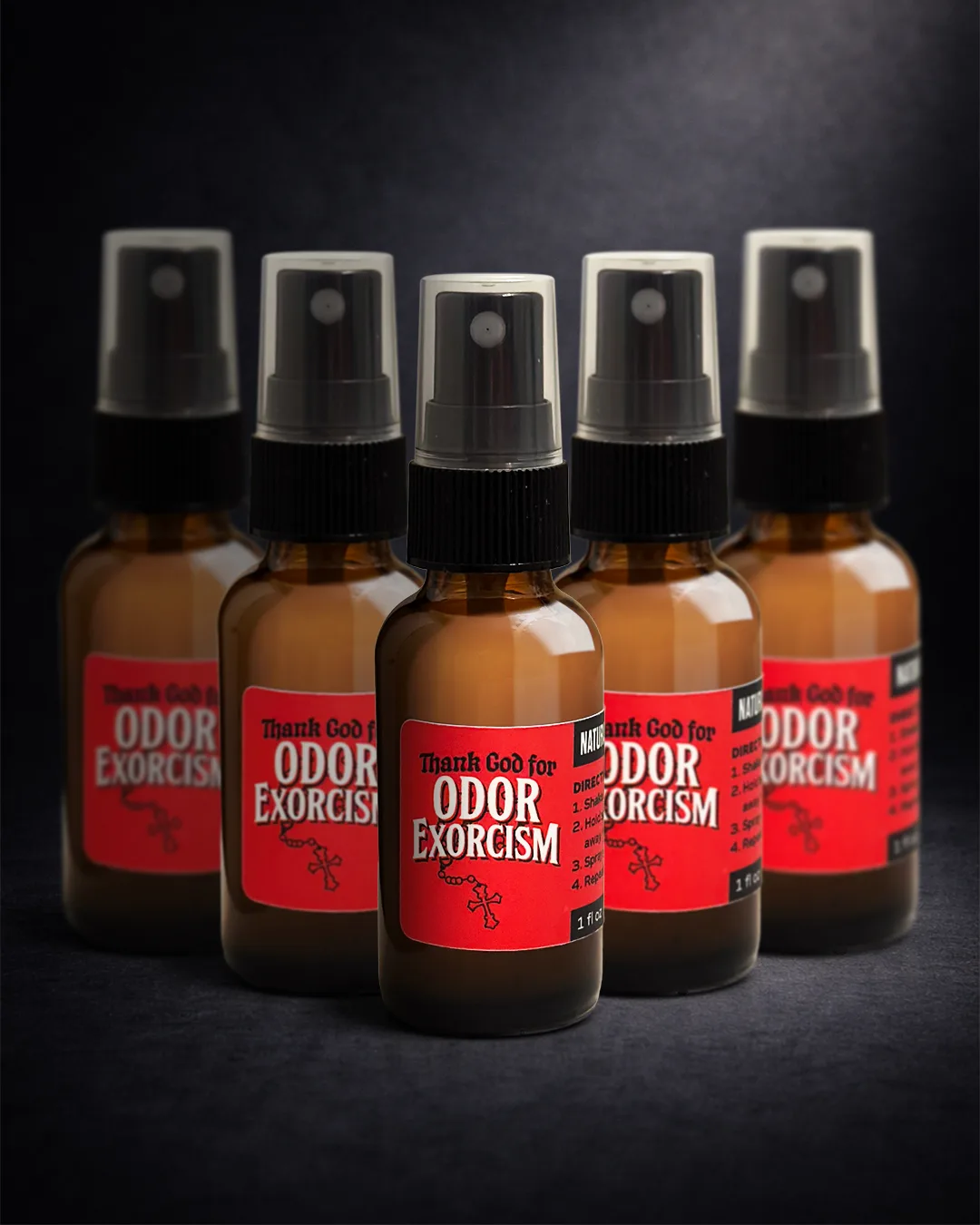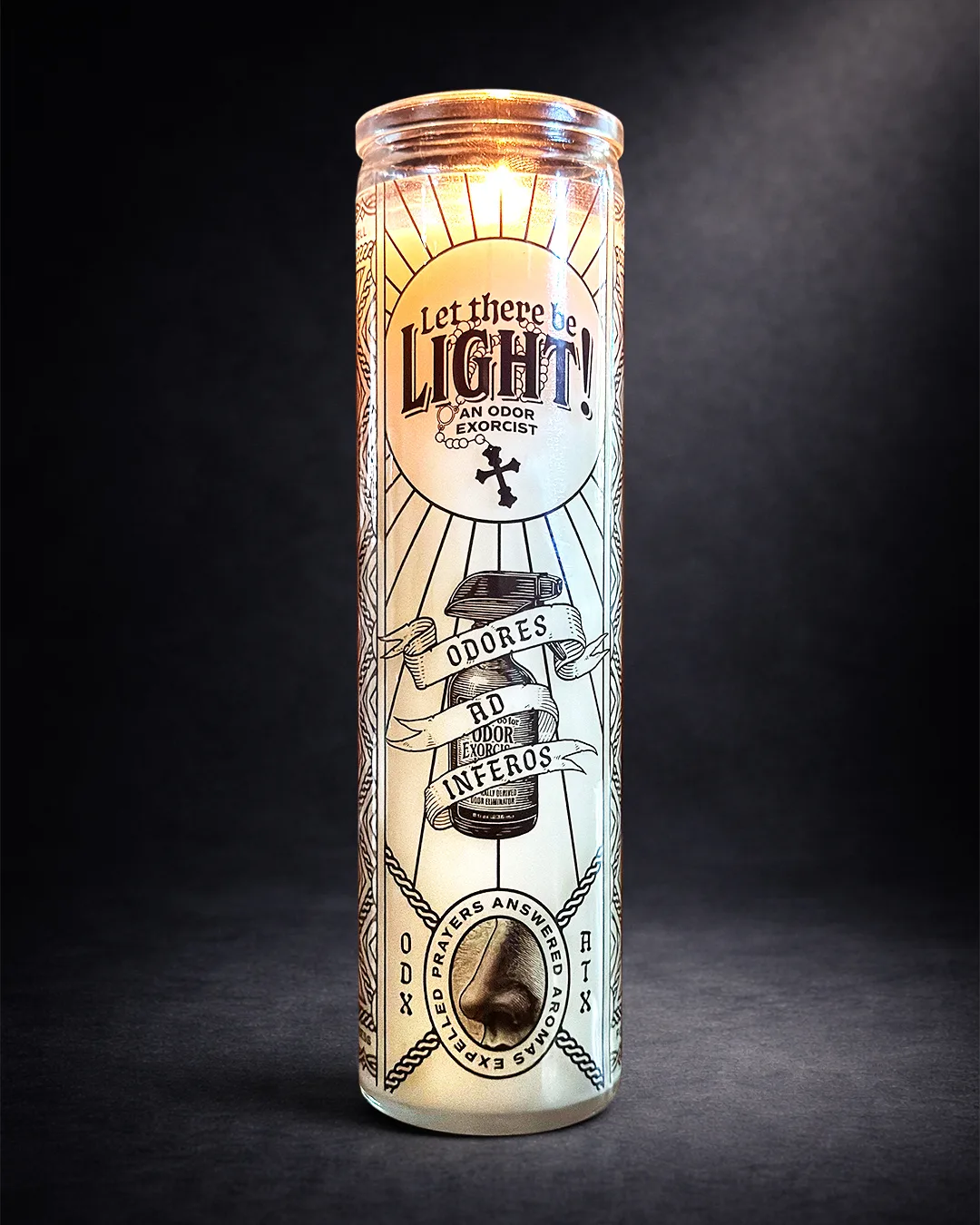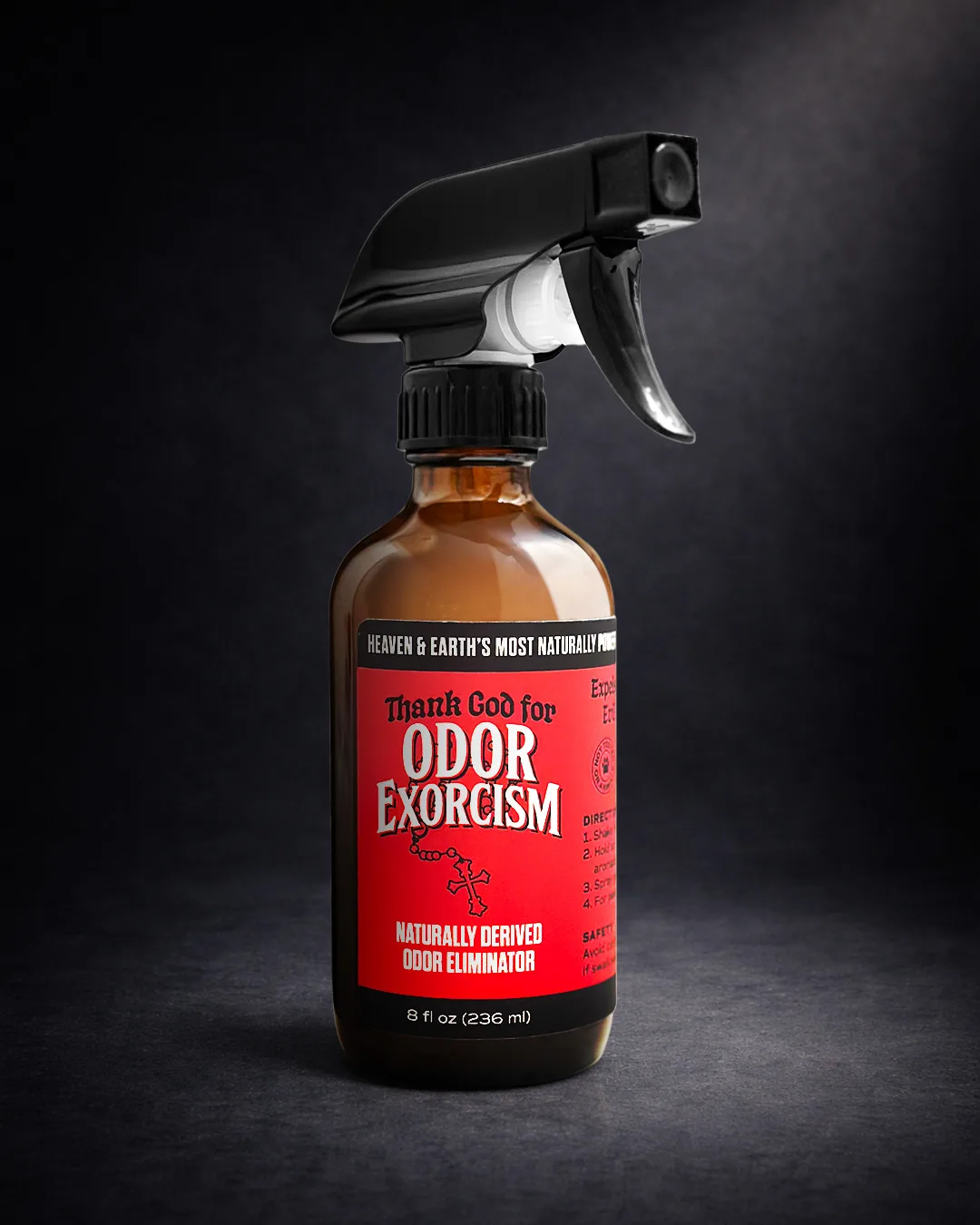7 ways “fragrance” chemicals may be trying to kill you

October 20, 2025
Have you ever had the eerie feeling that one of the ingredients in your odor eliminator spray was trying to kill you? No, you’re not going crazy, and you’re certainly not alone.
Walk down any cleaning-product aisle and you’re hit with a storm of “Fresh Meadow,” “Ocean Breeze,” and “Mountain Mist.” What you’re really inhaling, though, isn’t the Alps—it’s a synthetic stew of unlisted chemicals, all buried under the vague category of “fragrance.” That tiny word on the label can hide thousands of compounds, many of which are anything but fresh. Not only do they not want what’s best for you and your olfactory senses, many of them are likely plotting your death.
Here are seven ways those invisible ingredients may be quietly undermining your health, all while doing little-to-nothing about expelling the evil aromas from your home.
1. They turn your home into a chemical smog chamber
When you spray an air freshener or wipe a counter with a “lemon-scented” cleaner, volatile organic compounds (VOCs) evaporate into your indoor air. Some, like limonene (the chemical that smells like citrus), react with ozone in the air to form formaldehyde and ultrafine particles—known irritants and possible carcinogens. Because most of us spend about 90 % of our time indoors, these by-products don’t just dissipate: they linger, mix, and magnify. Your “clean” home air can end up dirtier than a downtown street corner.
2. They attack your lungs like a slow-motion asthma trigger
Fragrance molecules can irritate airway linings, provoking coughing, wheezing, and inflammation. Studies in Environmental Health Perspectives have linked scented cleaning sprays to higher asthma rates, even among people with no prior allergies. The effect isn’t just immediate—repeated exposure appears to sensitize the immune system, turning mild irritants into major triggers. Think of it as secondhand smoke’s perfumed cousin: invisible, underestimated, and pervasive.
3. They hijack your hormones
Many fragrance formulas include phthalates, chemicals that help scent molecules stick to surfaces and last longer. Unfortunately, they also mimic hormones in the body. Phthalate exposure has been associated with lower testosterone in men, disrupted menstrual cycles in women, and developmental effects in children. The endocrine system is exquisitely sensitive—even tiny doses can cause outsized effects over time. When your detergent “smells great for weeks,” it might be because it’s dosing your body with hormone impostors day after day.
4. They slip into your bloodstream through skin and lungs
Your skin is more absorbent than you think, especially in warm water or during cleaning marathons when pores open and blood flow increases. Fragrance chemicals can cross that barrier and enter circulation, as can inhaled particles that pass through lung tissue. Compounds like synthetic musks have been detected in human fat tissue, blood, and even breast milk. Once inside, some of these chemicals resist breakdown, accumulating over years—a slow toxic savings account with no interest, just consequences.
5. They wage war on your nervous system
If you’ve ever gotten a headache from a strongly perfumed cleaner, that’s your nervous system sounding the alarm. Neurotoxic compounds such as styrene and acetaldehyde, sometimes present in scented products, can irritate the trigeminal nerve and affect neurotransmitter balance. Repeated exposure may contribute to chronic migraines, dizziness, and cognitive fatigue. It’s no coincidence that fragrance sensitivity is now recognized as a disability in some workplaces and universities—these aren’t “just smells,” they’re neurological irritants.
6. They don’t just harm you—they poison God’s greatest gift to humankind: Planet Earth
When fragrance-laden rinse water runs down your drain, those chemicals hitch a ride to wastewater plants not designed to remove them. Some end up in rivers, where they disrupt fish reproduction and accumulate in sediments. Airborne VOCs also contribute to indoor and outdoor ozone formation, worsening smog. The environmental footprint of synthetic scents stretches far beyond your sink—what leaves your house doesn’t leave the planet.
7. They hide behind trade-secret loopholes
Perhaps the scariest part isn’t any single chemical—it’s the secrecy. U.S. law allows manufacturers to group any number of compounds under the catch-all term fragrance to protect “proprietary formulations.” That means you have no way of knowing whether your cleaner contains a benign essential oil or a neurotoxic solvent. Independent testing has found more than 100 undisclosed substances in household fragranced products, including allergens, carcinogens, and endocrine disruptors. Transparency isn’t just nice; it’s essential to a healthy home and healthy living
So what can you do?
- Read labels skeptically. “Unscented” doesn’t always mean fragrance-free—it can still contain masking agents. Look for products labeled fragrance-free or no synthetic fragrance, like Odor Exorcism.
- Go minimalist. Vinegar, baking soda, and plain soap clean remarkably well without any perfume. Scent to your taste with high-quality essential oils, or just pick up a bottle of Odor Exorcism.
- Ventilate like it matters. Open windows, run exhaust fans, and give your home’s air a fighting chance.
- Avoid dryer sheets and air fresheners. They’re fragrance bombs with few cleaning benefits.
- Support ingredient disclosure. Companies—like Odor Exorcism—that publish full chemical lists deserve your dollar; those that hide behind “proprietary” don’t.
The bottom line
Fragrance chemicals are the invisible intruders of modern living—seductive, pervasive, and often untested. Or as we at Odor Exorcism like to call them, Satan. They promise comfort and cleanliness but can deliver a toxic payload that infiltrates your lungs, hormones, and environment. You don’t need to live in a sterile, scent-free bubble; you just need awareness and agency.
Next time you reach for that bottle of “Spring Morning” cleaner, remember: if a product’s biggest mystery is what makes it smell so good, that might be exactly what makes it so dangerous.



